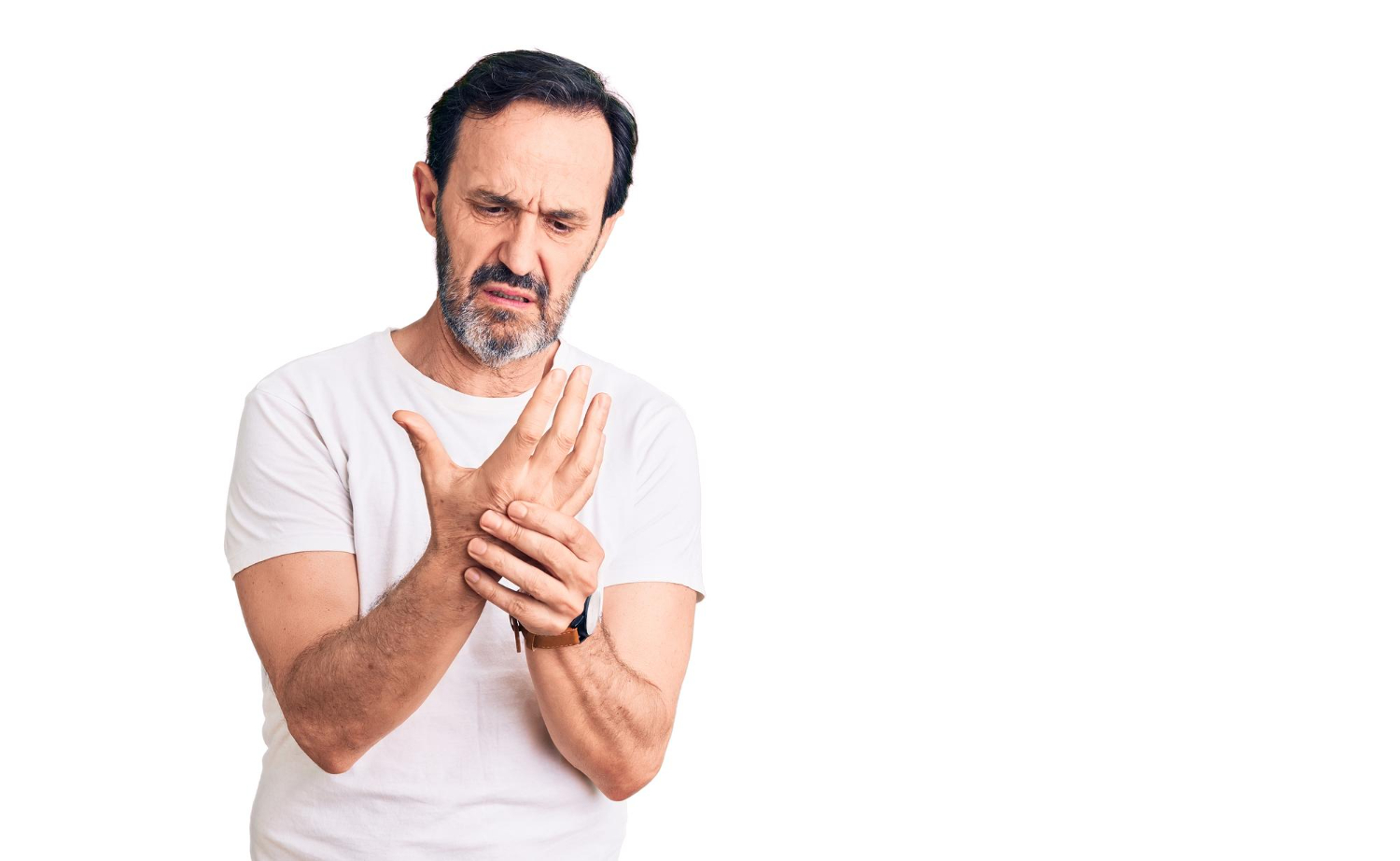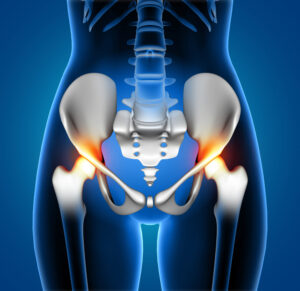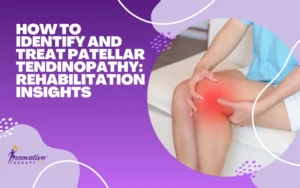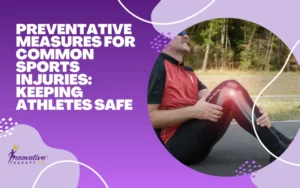Experiencing discomfort or pain in the hip area can be bothersome.
It affects not only your mobility but also your overall quality of life.
Here at Innovative Therapy PC, we understand how crucial it is to stay informed about hip pain causes to get the correct diagnosis and treatment.
Read on to understand various hip pain causes and how we can assist you on your healing journey.
What Causes Hip Pain?
Arthritis

Arthritis refers to inflammation of one or more joints. It’s a general term used to describe over 100 different types of joint diseases.
How it causes hip pain: When arthritis affects the hip joint, it means the cartilage cushioning the ends of the bones in the joint wears down over time.
As the protective cartilage deteriorates, bones grind against each other, causing pain and discomfort.
Core muscle injury (a.k.a. sports hernia or athletic pubalgia)
This injury doesn’t involve an actual herniation of abdominal contents. Instead, it’s a strain or tear in the lower abdomen or groin muscles.
How it causes hip pain: The pain arises because the muscles and tendons in the hip region become overstrained or torn, especially during intense physical activity. It is especially prevalent among athletes involved in sports demanding rapid changes in direction or intense twisting motions.
Bursitis
Bursae are tiny fluid-filled sacs that cushions between bones and soft tissues, like muscles and tendons. Bursitis is the inflammation of these sacs.
How it causes hip pain: Inflammation of the bursa located over the outer point of the hip (trochanteric bursitis) can lead to a sharp, burning pain on the outer hip and thigh. The pain often worsens with extended periods of activity or prolonged sitting.
Tendonitis
Tendinitis is the inflammation or irritation of a tendon, a thick cord attaching muscle to bone.
How it causes hip pain: Tendinitis in the hip occurs when the tendons become inflamed due to overuse, strain, or injury. Depending on the affected tendon, this can cause pain and tenderness right outside the joint or deeper within the groin.
Hip Labral tears

The labrum is a ring of cartilage that follows the outside rim of your hip joint socket. Tears can result from injury, structural abnormalities, or wear and tear over time.
How it causes hip pain: A tear in the hip labrum can cause a catching sensation or a clicking sound, along with pain in the groin or hip area, especially during specific movements or activities.
Gynecological or pelvic floor issues
This pertains to problems related to female reproductive organs or pelvic floor muscles and tissues.
How it causes hip pain: Conditions like endometriosis, ovarian cysts, or pelvic floor dysfunction can cause referred pain to the hip region. This pain can be sharp, dull, or cramping and may be associated with a woman’s menstrual cycle.
Hip fractures
A hip fracture is a break in the upper portion of the femur or thigh bone.
How it causes hip pain: A fractured hip is intensely painful, and any movement of the injured leg can exacerbate it. Fractures are usually the result of a fall or a direct blow to the side of the hip, commonly seen in older people due to osteoporosis.
Less common causes
Snapping hip syndrome

This condition occurs when a muscle, tendon, or ligament rolls over a bony prominence in the hip, creating a snapping or popping sensation.
How it causes hip pain: The snapping can be painless for some, but for others, it may cause discomfort or lead to inflammation over time, resulting in hip pain.
Osteonecrosis
Osteonecrosis, or avascular necrosis, is the death of bone tissue due to a lack of blood supply.
How it causes hip pain: When osteonecrosis affects the hip joint, it can cause the bone to collapse, leading to severe arthritis-like pain. Initial stages might present mild discomfort, but the pain can become more intense and constant as the condition progresses.
When should I seek emergency care?
Experiencing hip pain doesn’t always mean an immediate trip to the emergency room. However, there are situations where prompt medical attention is essential.
If you experience intense pain suddenly, have difficulty or inability to move your leg or hip, or have a visible deformity or swelling around the joint, it’s time to seek emergency care.
Additionally, if fever, chills, or redness accompany your hip pain, these could be signs of an infection, and you should promptly contact a medical professional.
How is hip pain diagnosed?
Diagnosing hip pain begins with a comprehensive medical history review and physical examination.
Your doctor will assess your hip’s mobility, strength, and alignment.
They might ask you to perform specific movements to determine the pain source. Diagnostic tests like X-rays, MRI, and CT scans can provide detailed visuals of the hip joint and surrounding structures.
Sometimes, blood tests or fluid samples from the hip joint might be necessary to diagnose arthritis or infections.
What are the treatment options for hip pain?

Treatment options vary based on the cause and severity of the pain. Common treatments include:
- Pain Relievers: Over-the-counter pain medications, such as acetaminophen or NSAIDs, can be effective for mild to moderate pain.
- Physical Therapy: Therapists can provide exercises to strengthen the hip and improve flexibility.
- Injections: Corticosteroids or hyaluronic acid can be injected directly into the hip to relieve pain.
- Surgery: In cases of severe fractures, degenerative arthritis, or specific injuries, surgical intervention might be necessary.
Also Read On Hip Pain:
- Comprehensive Hip Pain Guide: Causes, Symptoms, Treatments
- Hip Pain at Night: Causes, Treatments, and Prevention
- Powerful Solutions: 7 Home Remedies to Alleviate Pregnancy Hip Pain
FAQs About Hip Pain Causes
What can cause hip pain in a woman?
While many hip pain causes are common to men and women, certain conditions are specific to or more prevalent in women. These include gynecological issues like endometriosis, pelvic inflammatory disease, ovarian cysts, and pregnancy-related pelvic girdle pain.
What is the most common reason for hip pain?
The most prevalent cause of hip pain is osteoarthritis. It occurs when the protective cartilage cushions the ends of the bones. It wears down over time, leading to pain, swelling, and reduced joint mobility.
How do I know if my hip pain is severe?
Suppose your hip pain persists despite home remedies, intensifies over time, or is accompanied by other concerning symptoms like fever, sudden swelling, or a visible deformity. In that case, it’s time to see a doctor. These could be indicators of a more severe underlying issue.
What can be mistaken for hip pain?
Sometimes, the discomfort you feel doesn’t originate from the hip itself. Referred pain from the lower back or sacroiliac joints, lumbar herniated discs or certain abdominal conditions can mimic hip pain.
Conclusion
Hip pain can stem from many causes, from standard to more obscure.
Knowing when to seek care, understanding diagnostic procedures, and being aware of the available treatment options, both traditional and alternative, are crucial in navigating this ailment.
At Innovative Therapy PC, we prioritize your well-being and encourage everyone to seek timely interventions for persistent or severe hip pain.
Don’t let pain hold you back—reach out, and let’s journey towards better health together.





